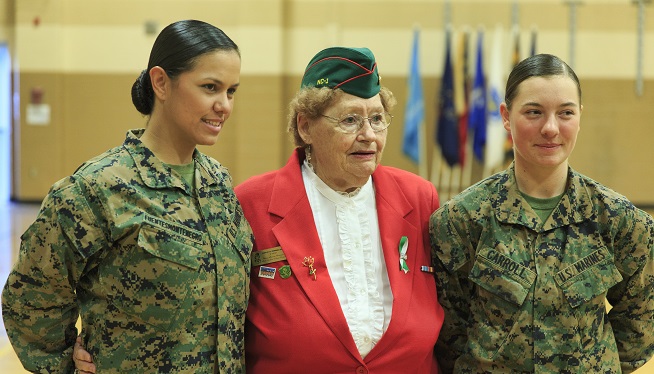WASHINGTON — (CNN) All U.S. military combat positions are being opened up to women, Defense Secretary Ash Carter announced Thursday.
The decision allows women to fill about 220,000 jobs that are now limited to men — including infantry, armor, reconnaissance and some special operations units.
“This means that as long as they qualify and meet the standards, women will now be able to contribute to our mission in ways they could not before. They’ll be able to drive tanks, give orders, lead infantry soldiers into combat,” Carter said at a news conference Thursday.
“There will be no exceptions,” he added.
Carter’s historic announcement comes after years-long reviews, and after public push-back from the Marine Corps, which had sought exceptions to keep positions such as infantry, machine gunner, fire support and reconnaissance to men. A Marine Corps study suggests all-male squads are more effective in combat and less likely to be injured than integrated groups.
Carter acknowledged the Marines’ resistance, but said he’d decided to set a policy that covers the full department.
“We are a joint force, and I’ve decided to make a decision that applies to the entire force,” Carter said.
The policy move will take effect after 30 days, Carter said.
He said the decision doesn’t mean there will quickly become an even gender split in most combat positions. He said there are “physical differences on average” between men and women and that “thus far, we’ve only seen small numbers of women qualify to meet our high physical standards” for some units.
“Going forward, we shouldn’t be surprised if these small numbers are also reflected in areas like recruitment, voluntary assignment, retention,” he said.
He acknowledged that “some service members, men and women, have a perception that integration would be pursued at a cost of combat effectiveness.”
However, Carter said: “The military has long prided itself on being a meritocracy.”
Two women made history in August by becoming the first female soldiers to complete the Army’s Ranger School, but they couldn’t apply to join the 75th Ranger Regiment, an elite special operations force — until now.
The-CNN-Wire ™ & © 2015 Cable News Network, Inc., a Time Warner Company. All rights reserved.
(Photo: CNN)





















